All Stories
-
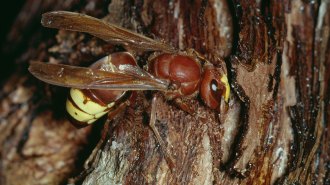 Animals
AnimalsThese hornets may be the alcohol-detox champs of the animal world
Vespa orientalis fed an 80-percent-ethanol brew still did hornet tasks and had normal life spans. This trick may be an adaptation to gut-dwelling yeast.
By Susan Milius -
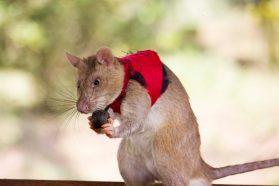 Animals
AnimalsGiant rats could soon help sniff out illegally smuggled goods
African giant pouched rats can detect landmines and diseases. Now some have been trained to sense elephant ivory, pangolin scales and more.
-
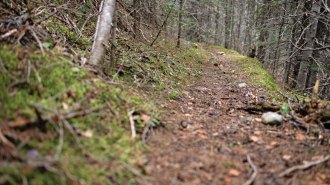 Archaeology
ArchaeologyA race to save Indigenous trails may change the face of archaeology
As construction of a pipeline nears, an effort to preserve an Indigenous trail in Canada tests whether heritage management can keep up with advances in archaeology.
By Sujata Gupta -
 Climate
ClimateFans may not keep older adults cool during heat waves
Older adults are at higher risk of suffering health consequences during heat waves. Fans may not do enough to prevent that.
-
 Health & Medicine
Health & MedicineAre synthetic food dyes bad for you? Here’s what the science says.
California is banning them in schools. The FDA says they’re fine. But synthetic dyes added to food to make them more colorful have a long, troubled history.
-
 Animals
AnimalsA common kitchen tool could help koala conservation
A simple device sucks koala DNA out of the air, making it easier for conservationists to detect the elusive marsupials.
-
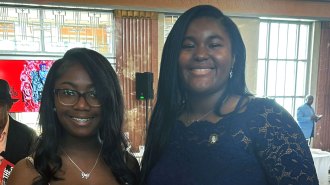 Math
MathTwo teenagers have once again proved an ancient math rule
Ne’Kiya Jackson and Calcea Johnson have published 10 trigonometric proofs of the Pythagorean theorem, a feat thought impossible for 2,000 years.
By Nikk Ogasa -
 Health & Medicine
Health & MedicineDrop in vaping drives tobacco product use by U.S. youth to a record low
The fewest number of U.S. middle and high school students are currently using tobacco products since the National Youth Tobacco Survey began in 1999.
-
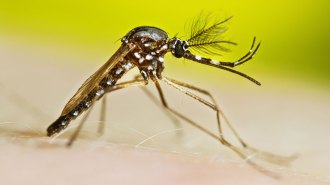 Health & Medicine
Health & MedicineMale mosquitoes sometimes suck, too
Blood isn’t actually toxic to all male mosquitos. In at least one virus-carrying species, it may even help them live longer.
-
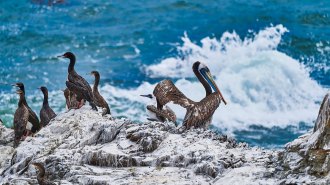 Science & Society
Science & SocietyThe U.S. empire was built on bird dung
A mid-1850s act let the United States seize islands rich in bird guano. Those strategic outposts fueled the U.S. rise to power, a researcher says.
By Sujata Gupta -
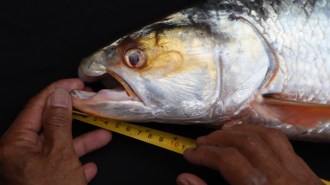 Animals
AnimalsThe ‘Mekong ghost’ megafish has resurfaced after an extinction scare
Rediscovery of giant salmon carp in Cambodia sparks hope for the rare fish’s survival and efforts to conserve one of the greatest diversity hot spots.
-
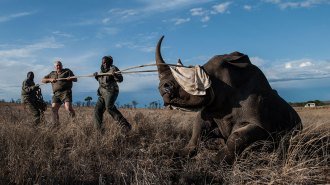 Life
LifeHow insects can help catch rhino poachers
A new study looks at which insects can be used as biological clocks to determine when a rhino was killed.
By Jude Coleman